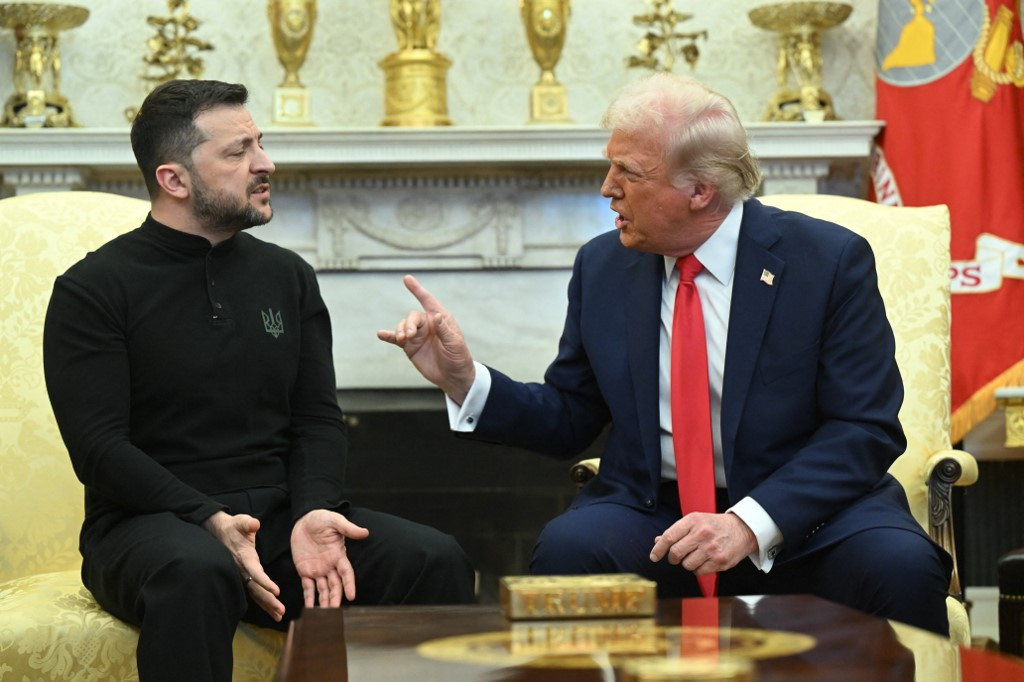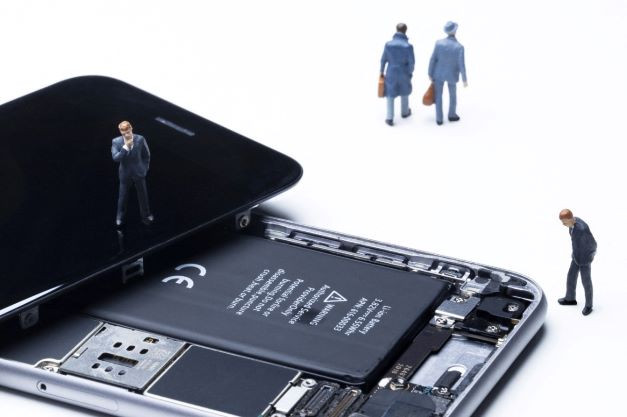Popular Reads
Top Results
Can't find what you're looking for?
View all search resultsPopular Reads
Top Results
Can't find what you're looking for?
View all search resultsZelensky-Trump clash sparks global rethink by US allies
As they watched Zelensky evicted from the White House last month after an unprecedented live televised quarrel with Trump and Vance, some of the United States' closest allies began to swiftly reappraise decades of foreign and defense policy.
Change text size
Gift Premium Articles
to Anyone
A
s they watched Ukrainian President Volodymyr Zelensky evicted from the White House last month after an unprecedented live televised quarrel with President Donald Trump and his Vice President JD Vance, some of the United States’ closest allies began to swiftly reappraise decades of foreign and defense policy.
It was a process that, if anything, accelerated this week as the US suspended military aid and then intelligence support to Kyiv, reportedly turning US transport planes around in flight and reducing Ukraine’s early warning of Russian drone and missile strikes.
A mineral deal between Washington and Ukraine appears to remain theoretically on the table, particularly after a written apology from Zelensky was read out by Trump in his March 4 address to both houses of Congress.
That deal, however, appears to lack solid security guarantees while transatlantic relations now look significantly damaged. European leaders are still scrambling to gauge to what extent they can fill the gap to keep the Kyiv government fighting while racing to build up their own defenses.
Speaking late on Wednesday, French President Emmanuel Macron said the world had become more “brutal” and peace in Europe was no longer guaranteed, announcing talks to use France’s independent nuclear deterrent to better protect the continent.
Much more broadly, US long-term partners, such as Britain, Japan and Germany, who have barely questioned their closeness to Washington and dependence in areas like weapons systems, are now tearing up such assumptions almost overnight.
In mainland Europe, leaders appear to view the schism with Washington as long-running if not permanent. Already, those concerns look like overcoming decades of inertia to prompt a reworking of EU budget rules to enable significant rearmament.
That in turn looks to be producing something of a tussle between individual nation states and the European Commission itself over where power and decision-making really lie.
If European nations really are going to take the entire responsibility for arming Ukraine, they will also have to make tough choices about what weapons to send to Kyiv and what to keep for their own defense.
Ukraine is desperate for air defenses, but so is the rest of Europe, and it does not yet build its own anti-aircraft missiles or enough artillery shells and drones.
Britain has pointedly not joined European criticism of the US president. The United Kingdom is in the final stages of a strategic defense review that had been expected to simply endorse Britain’s long-running partnership with Washington to use US Trident missiles for Britain's nuclear deterrent.
If the trends of the last week continue for much longer, the wisdom of that may be questioned even by traditionally pro-US opposition Conservative MPs. For all that, however, most nations still hope to avoid overly upsetting the Trump administration.
Overall, most US allies now expect a long-term trend toward greater US isolationism.
The greatest driver of that has arguably been Vice President Vance, and that often appears to have been deliberate.
His speech to the Munich Security Conference last month had already raised some hackles, as did his needling of Zelensky at the White House and criticism of the UK during Prime Minister Keir Starmer’s visit that same week.
Most provocative of all, however, was his dismissal of talk of European peacekeeping on Tuesday in which he described contributors to the suggested force as some “random country that has not fought a war for 30 or 40 years”.
He was swiftly forced to deny that he was referring to Britain or France, which have both fought extensively in counterinsurgency and counterterrorism operations, including with and for US-led coalitions. But the damage from his utterance appears lasting.
As vice president, Vance has a strong chance of being the Republican candidate at the next US election in 2028, as Trump cannot seek a third term under the US Constitution.
With the Democrats still in disarray, Vance might well emerge the victor. Should he serve two terms in office, that could see him dominating US foreign policy for well over a decade and he has already made more of a splash in the last few weeks than most vice presidents have ever managed.
At the swearing-in of Trump’s pick as Defense Secretary Pete Hegseth, Vance made it clear he would be particularly reluctant to deploy US troops long-term to protect allies in future.
More broadly, under Trump the US looks set to pull funding from some long-term areas of defense, including army troop formations that would fight in Europe, in favor of ships for the Pacific, unmanned systems, a renewed focus on US border security and a missile defense shield now dubbed “Golden Dome” that would protect against foreign ballistic missiles.
For all the short term focus on Ukraine, in the longer run it is what is happening in Asia that may be both more dangerous and important.
“If war is what the US wants, be it a tariff war, a trade war or any other type of war, we are ready to fight until the end," China's Foreign Ministry said in a statement.
It described the US blaming China for the fentanyl drug crisis as a "flimsy excuse" and warned of "legitimate and necessary" countermeasures. US law enforcement says most fentanyl is made in Mexico but from Chinese ingredients.
In more normal times, comments such as those might have received a lot more media coverage.
Taiwan, increasingly threatened by a Chinese military that US intelligence says has been ordered by President Xi Jinping to be ready to invade by 2027, seems particularly in the firing line.
Successive US administrations have long maintained what they termed “strategic ambiguity” over whether they would fight for Taiwan, with Trump's predecessor Joe Biden being by far the most assertive in recent history stating that the US would fight for the island. Getting a similar certainty from the Trump administration appears a lot less likely. Indeed, the president himself has explicitly ruled out revealing his hand.
On March 3, Trump met with C.C. Wei, CEO of the world’s largest manufacturer of high-tech chips, the Taiwan Semiconductor Manufacturing Corporation, to celebrate the movement of some manufacturing and potentially research to Arizona.
Trump said the move would "diversify to a very safe location" in a way that would have "a big impact if something should happen" with Taiwan.
That will not have allayed worries on the island or elsewhere that “something” might be coming, either under the current unpredictable administration or an even more isolationist successor.
---
The writer is a columnist for Reuters. The views expressed are personal.










